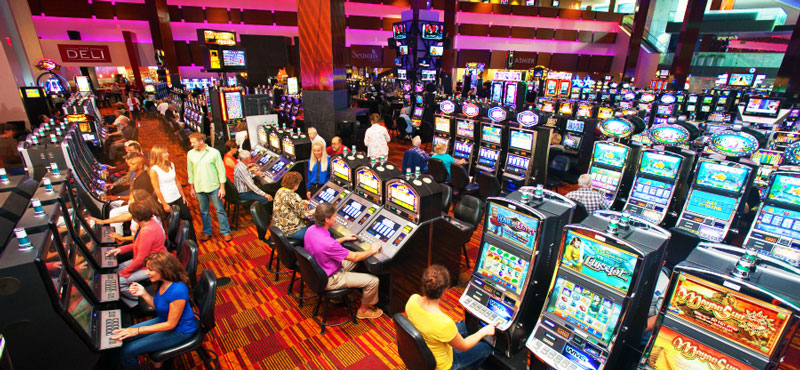
Gambling games have long been a significant aspect of human culture, providing not just entertainment but a fascinating reflection of our dreams, ambitions, and anxieties. From the turning reels of a slot machine to the tactical play of poker, these games represent a spectrum of human emotions and events. At their core, casino games are more than a chance to make profits; they are a reflection of life itself, where risk versus reward converge and luck can change in an instant.
As players assemble around tables or sit in front of vibrantly illuminated machines, they take part in a ritual that transcends mere gambling. These games mirror our innate desires for relationships, adventure, and the pursuit of luck. They also unveil deeper truths about human nature, such as our relationship with fate and the thrill of the unknown. In exploring casino games, we discover not only the nuances of play but also the complex weave of the human experience, showcasing our intertwining narratives of goal and reality.
The Mind Behind Gambling
Wagering is intrinsically connected in the psyche of individuals, tapping into various emotions and desires. The excitement of risk-taking is a fundamental aspect that draws players in, whether the thrill of spinning a roulette wheel or the excitement of drawing a winning card in a poker game. This adrenaline is frequently likened to other forms of thrill, as the unpredictability of outcomes elicits a unique psychological response. Gamblers often become entranced by the possibility of striking it rich, leading to an irresistible draw toward casino games.
Additionally, a crucial component of the psychology behind gambling is the concept of optimism and aspiration. Players often nourish dreams of financial freedom and the luxurious lifestyle that can follow winning. This optimism fuels their ongoing participation in casino games, as it provides a sense of purpose and the belief that a transformative win could be just one bet away. https://fabet.trading/ The story of beating the odds and finding success resonates with many, reinforcing their dedication to play and engage with these games.
Lastly, social dynamics play a significant role in gambling psychology. Casino environments are designed to foster social interaction, where players gather to share the journey of wins and losses. This shared aspect not only amplifies enjoyment but also influences behavior, as individuals often mimic the actions of others in their vicinity. The collective approval found in mutual thrill can magnify the emotional experience, making casino games a reflection of not just personal desires but also shared involvement within the gambling community.
### Risk and Reward: A Double-Edged Sword
Gambling games embody the subtle balance between risk and reward that resonates deeply with human nature. The excitement of placing a wager is often accompanied by a surge of excitement, as participants are confronted with the possibility of striking it rich, yet fully aware of the risk to lose. This twofold experience reflects a essential aspect of life: the decisions we face often come with intrinsic risks, and the quest for benefit can push us to embrace risks we might not otherwise consider. In this way, casino games mirror real-world decisions, enticing players to gamble not just their capital, but also their hopes.
The allure of jackpot prizes and winnings fuels a wave of hope, motivating gamblers to dream of a brighter future that could arise from a lucky spin of the roulette or turn of a card. This optimism can drive individuals to engage in more daring actions, pushing them to take greater risks in search of economic benefit. However, just as in life, the results of these decisions can lead to both triumph and despair. The narratives of both jackpot winners and those who have faced losses everything at the casino demonstrate the chaotic nature of chance and its significant impact on our lives.
Ultimately, the interaction of engaging with casino games serves as a strong reminder of the nature of humanity. Every game played is loaded with the tension of ambiguity, as gamblers weigh the gains against the dangers. This balance not only highlights the excitement that comes with gambling but also exposes the risks that come with the longing for more. As we navigate the complexities of choice and results in both the casino and in life, we find that the quest for gain shapes our identities and experiences in significant manners.
Culture and Solitude in Gambling Culture
Casino environment is a special blend of communal engagement and personal endeavor, reflecting the tensions of individual experience. Players often gather around games, sharing in the thrill of the action, celebrating wins, and sympathizing over losses. This social aspect is crucial, as it creates a sense of belonging and bonding among diverse groups of people. Regular visitors to casinos may build friendships and develop routines, turning the casino into a second home where they feel linked to a larger community of players.
However, the appeal of gambling activities can also result to isolation. As individuals become immersed in the excitement of playing, they may withdraw from personal connections or neglect to engage with the environment outside the gaming space. For some, the search of a windfall can overshadow genuine relationships, leading to isolation. The situation of being among others yet experiencing solitary is not rare, as the focus shifts from collective fun to the private concerns of each individual’s journey.
This interplay of community and isolation creates a vivid tapestry that defines gaming culture. It showcases the intricacy of human interactions, where happiness and sorrow coexist. Gambling venues serve as both a refuge for social interaction and a stage for individual challenges, illustrating how deeply entwined our desire for companionship and the individual quest for wealth can be. In navigating this landscape, players confront their own stories—seeking both the rush of the game and the fellowship of fellow players, eventually mirroring the wider spectrum of individual experience.